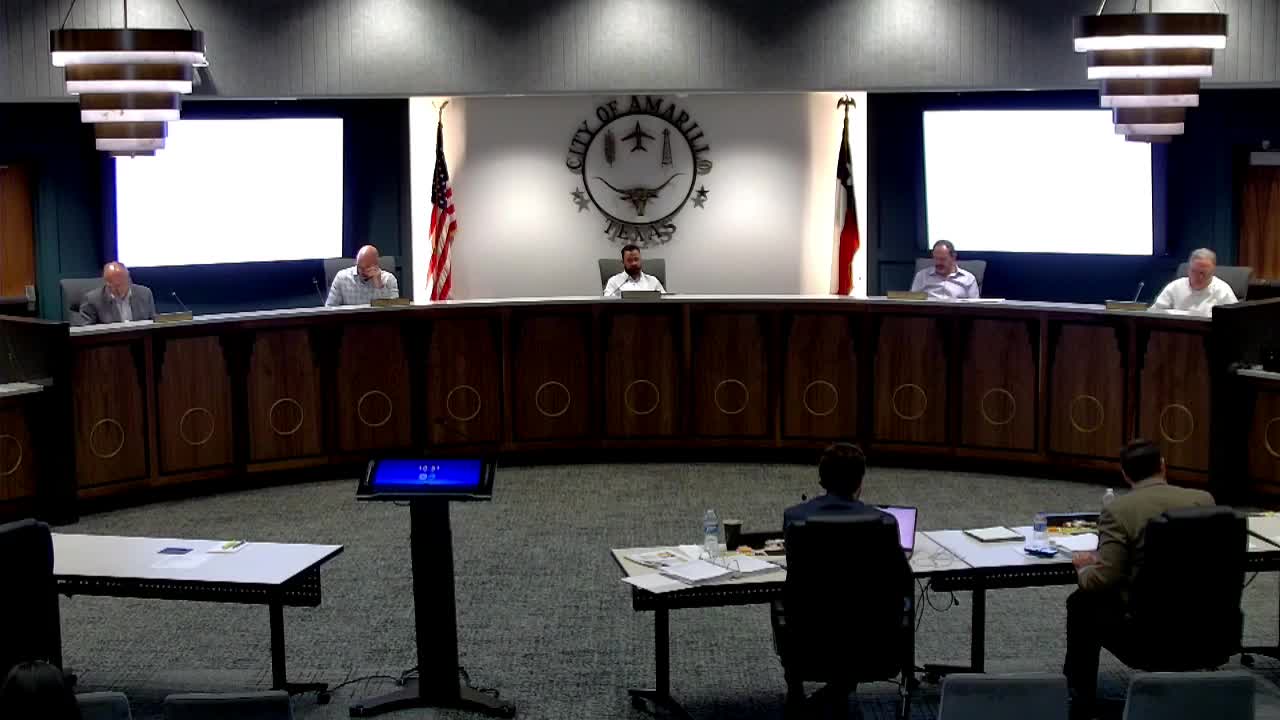Jennifer Gonzales discusses increased staffing for vital statistics amid rising demand
August 06, 2025 | Amarillo, Potter County, Texas
This article was created by AI summarizing key points discussed. AI makes mistakes, so for full details and context, please refer to the video of the full meeting. Please report any errors so we can fix them. Report an error »

The Amarillo City Council Workshop held on August 6, 2025, focused on several key areas, including vital statistics, community development, and public health funding. The discussions highlighted the increasing demands on city services and the financial implications of various grant programs.
One of the primary topics was the vital statistics department, which is responsible for issuing birth and death records for Potter and Reynolds counties. Under the leadership of Jennifer Gonzales, the department has seen a significant increase in demand due to changes in state regulations requiring valid birth certificates for license renewals. This surge has resulted in a workload that exceeds the capacity of the current staff, prompting discussions about reallocating resources and potentially increasing staffing to meet the demand.
The workshop also addressed community development funding, particularly in relation to housing assistance. The city anticipates receiving over $12.5 million from HUD to support housing initiatives, which is crucial given the ongoing waitlist for housing vouchers. The council noted that while grant funding is expected to remain strong, there may be a slight pullback in some areas, necessitating careful budget management.
Public health initiatives were another focal point, with discussions surrounding the American Rescue Plan Act funding. The city has committed to using these funds for various projects, including a women's health clinic that has recently expanded its services through a new family planning grant. This initiative aims to provide essential health services to women in the community, reflecting a broader commitment to public health and wellness.
Additionally, the council reviewed several grant programs, including those related to opioid settlements and traffic safety. The opioid settlement funds, which are expected to total around $390,000, will be used for community education and resources related to substance abuse prevention. Meanwhile, the red light camera fund, which is being depleted, will be used for traffic safety measures, signaling a shift in how the city will manage traffic safety funding in the future.
In conclusion, the Amarillo City Council Workshop underscored the city's proactive approach to addressing community needs through strategic funding and resource allocation. As the council prepares for future budget considerations, the discussions highlighted the importance of adapting to changing demands while ensuring that essential services remain accessible to residents. The next steps will involve closely monitoring grant funding and making necessary adjustments to support ongoing initiatives.
One of the primary topics was the vital statistics department, which is responsible for issuing birth and death records for Potter and Reynolds counties. Under the leadership of Jennifer Gonzales, the department has seen a significant increase in demand due to changes in state regulations requiring valid birth certificates for license renewals. This surge has resulted in a workload that exceeds the capacity of the current staff, prompting discussions about reallocating resources and potentially increasing staffing to meet the demand.
The workshop also addressed community development funding, particularly in relation to housing assistance. The city anticipates receiving over $12.5 million from HUD to support housing initiatives, which is crucial given the ongoing waitlist for housing vouchers. The council noted that while grant funding is expected to remain strong, there may be a slight pullback in some areas, necessitating careful budget management.
Public health initiatives were another focal point, with discussions surrounding the American Rescue Plan Act funding. The city has committed to using these funds for various projects, including a women's health clinic that has recently expanded its services through a new family planning grant. This initiative aims to provide essential health services to women in the community, reflecting a broader commitment to public health and wellness.
Additionally, the council reviewed several grant programs, including those related to opioid settlements and traffic safety. The opioid settlement funds, which are expected to total around $390,000, will be used for community education and resources related to substance abuse prevention. Meanwhile, the red light camera fund, which is being depleted, will be used for traffic safety measures, signaling a shift in how the city will manage traffic safety funding in the future.
In conclusion, the Amarillo City Council Workshop underscored the city's proactive approach to addressing community needs through strategic funding and resource allocation. As the council prepares for future budget considerations, the discussions highlighted the importance of adapting to changing demands while ensuring that essential services remain accessible to residents. The next steps will involve closely monitoring grant funding and making necessary adjustments to support ongoing initiatives.
View full meeting
This article is based on a recent meeting—watch the full video and explore the complete transcript for deeper insights into the discussion.
View full meeting
